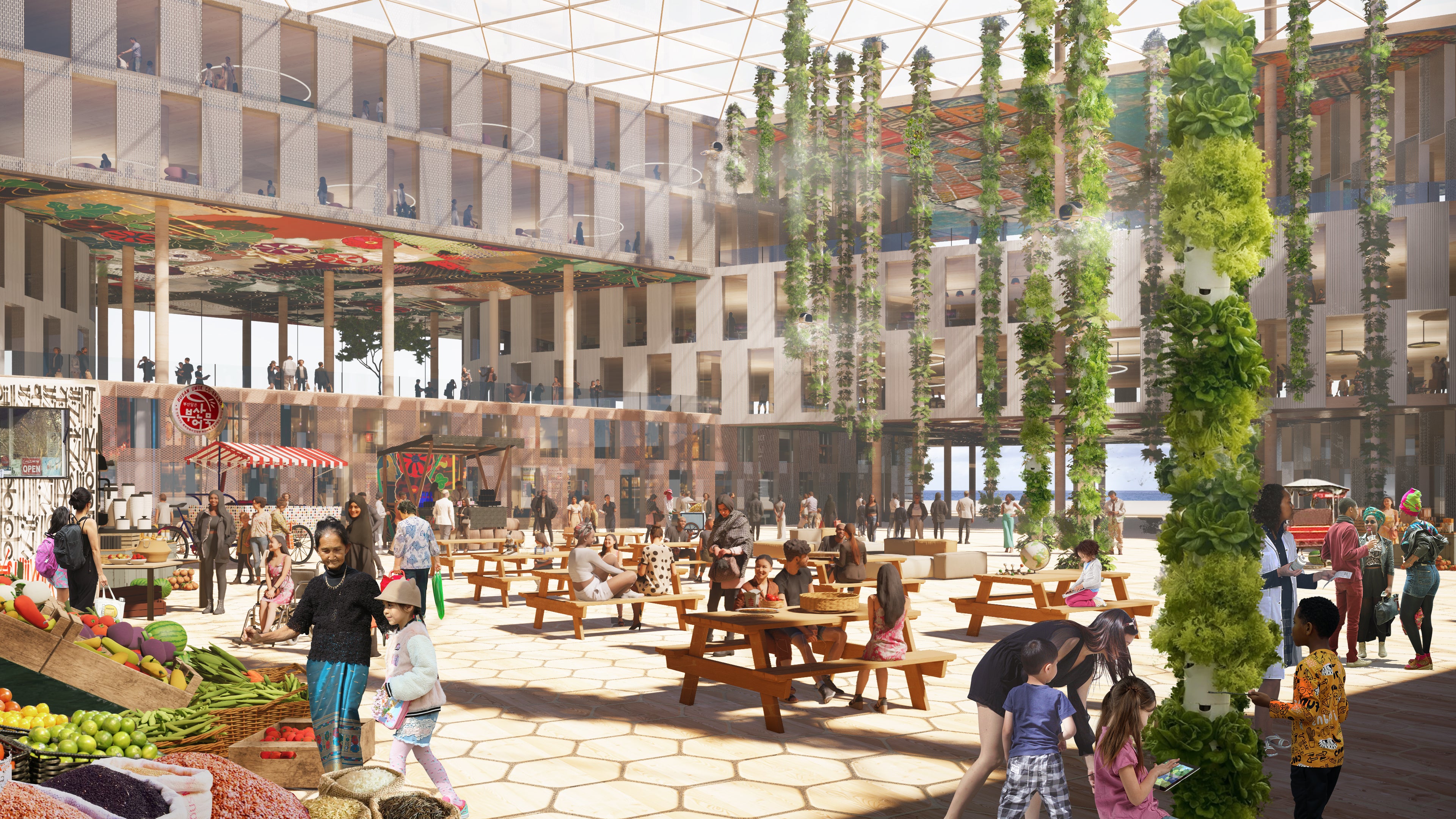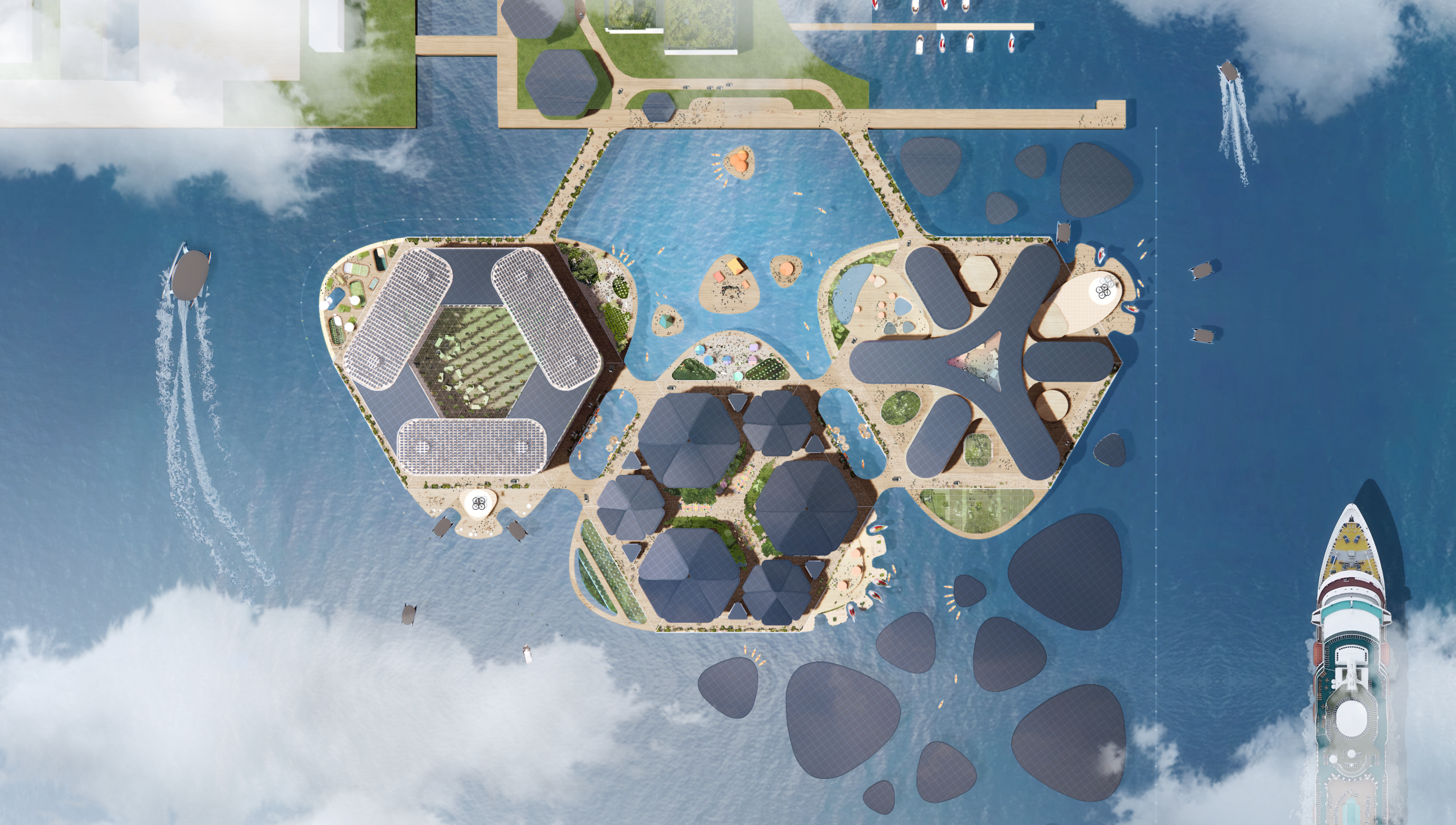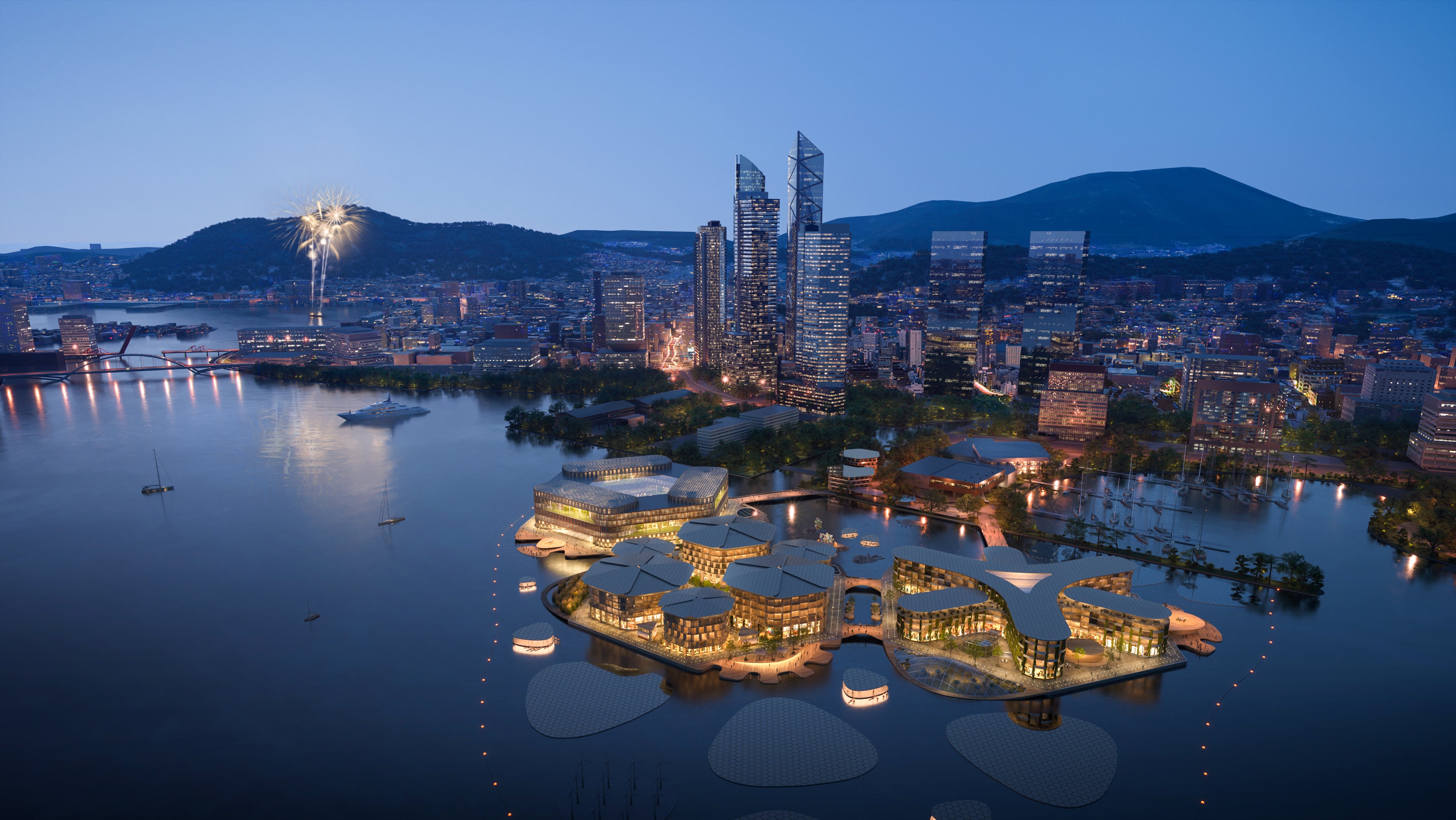Meet the world’s first ‘floating city’ to face rising sea levels which begins construction in 2023
Busan in South Korea will host a prototype of the idea, intended to help coastal cities adapt to the climate crisis
Your support helps us to tell the story
From reproductive rights to climate change to Big Tech, The Independent is on the ground when the story is developing. Whether it's investigating the financials of Elon Musk's pro-Trump PAC or producing our latest documentary, 'The A Word', which shines a light on the American women fighting for reproductive rights, we know how important it is to parse out the facts from the messaging.
At such a critical moment in US history, we need reporters on the ground. Your donation allows us to keep sending journalists to speak to both sides of the story.
The Independent is trusted by Americans across the entire political spectrum. And unlike many other quality news outlets, we choose not to lock Americans out of our reporting and analysis with paywalls. We believe quality journalism should be available to everyone, paid for by those who can afford it.
Your support makes all the difference.Designs for the world’s first “floating city” were unveiled on Tuesday as a possible solution for coastal communities under threat from rising sea levels linked to the climate crisis.
The urban design project is intended to be built in the port of Busan, South Korea, a city of 3.4 million people.
Renderings show buildings clustered on floating platforms, connected to each other and the mainland through pedestrian bridges. The idea is that as sea level fluctuates, so will these platforms.
The three main platforms will be designated for “lodging,” “research,” and “living”, according to a press release.
The project is a partnership between the city of Busan, the United Nations Human Settlement Programme, and Oceanix, a technology and design firm. The partnership was formed late last year.
The project claims that the floating city will host “a community of 12,000 residents and visitors,” with the possibility to expand and bring that number closer to 100,000.
The project says that the cluster of floating buildings will be fully energy independent through a series of solar panels, in addition to the ability to "treat and replenish its own water”.

Mock-ups of neighbourhoods on the platforms show accommodating open spaces with public seating, greenery and art. The project claims that the cluster of islands will offer greenhouses and “innovative urban agriculture”.
A representative from Oceanix told The Independent that the project plans to start construction in 2023.
Sea level rise is one of the major challenges of the climate crisis, as rising tides and expanding floodplains threaten to upend life in coastal cities around the world.
Already, sea level has risen by around 21-24 centimetres (8-9 inches) since 1880, according to the US’s National Oceanic and Atmospheric Administration.
But that’s just a drop in the bucket to what might be coming. According to the most recent report from the UN’s Intergovernmental Panel on Climate Change (IPCC), even under some lower emissions scenarios, sea level is likely to rise by around half a metre (20 inches) by the end of the century.

Under higher-emission scenarios, coupled with the somewhat unlikely event of Antarctic ice-sheet collapse, the world could see over 1.5m (5ft) of sea level rise by 2100.
Further into the future, the problem becomes even more profound. Under the highest future emissions scenarios in the IPCC report, sea level would be expected to rise by about two metres (6.5 feet) by the year 2300, at a minimum, with the possibility of rising almost seven metres (23 feet) — or more.
And that’s just sea level rise — in addition to areas that will become permanently inundated, more areas will face flooding risks from storms as the oceans creep inland. In 2016, Busan itself faced down the Category 5 Super Tyhpoon Chaba.

The global coastline is changing, and will impact the lives of people who live along it.
According to the UN, over 600 million people — around one in every ten people on Earth — live less than 10 metres above sea level.




Join our commenting forum
Join thought-provoking conversations, follow other Independent readers and see their replies
Comments